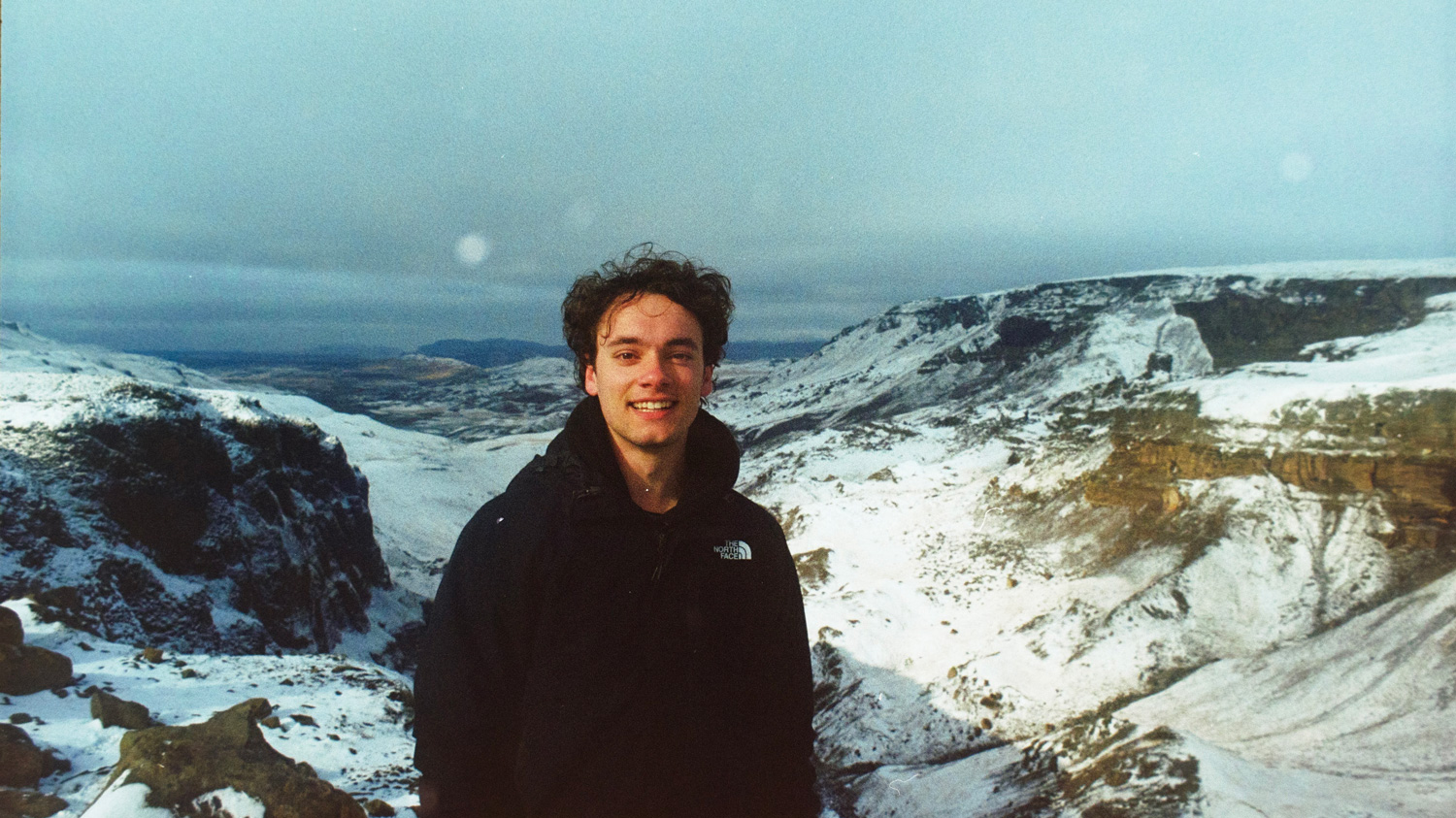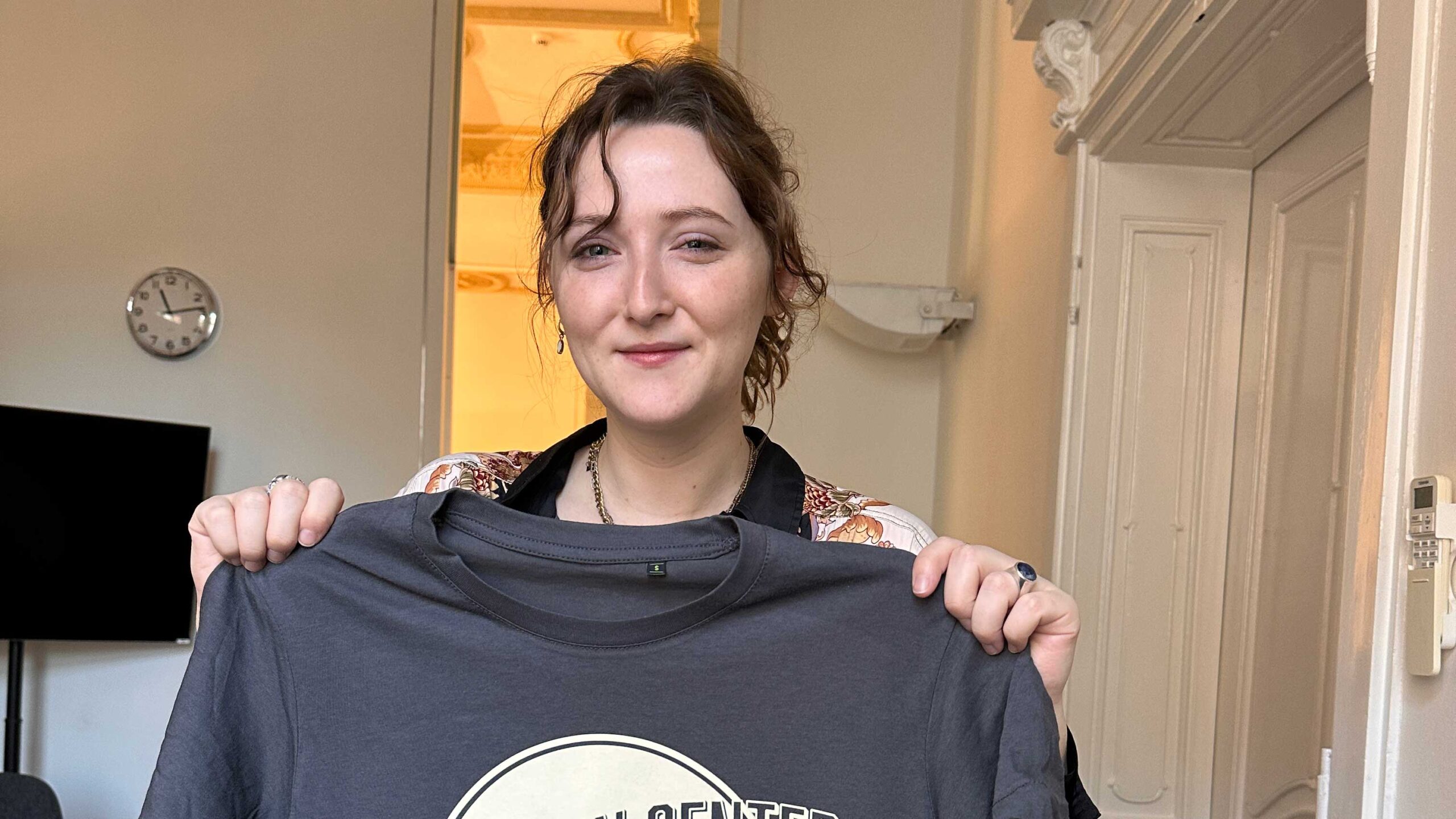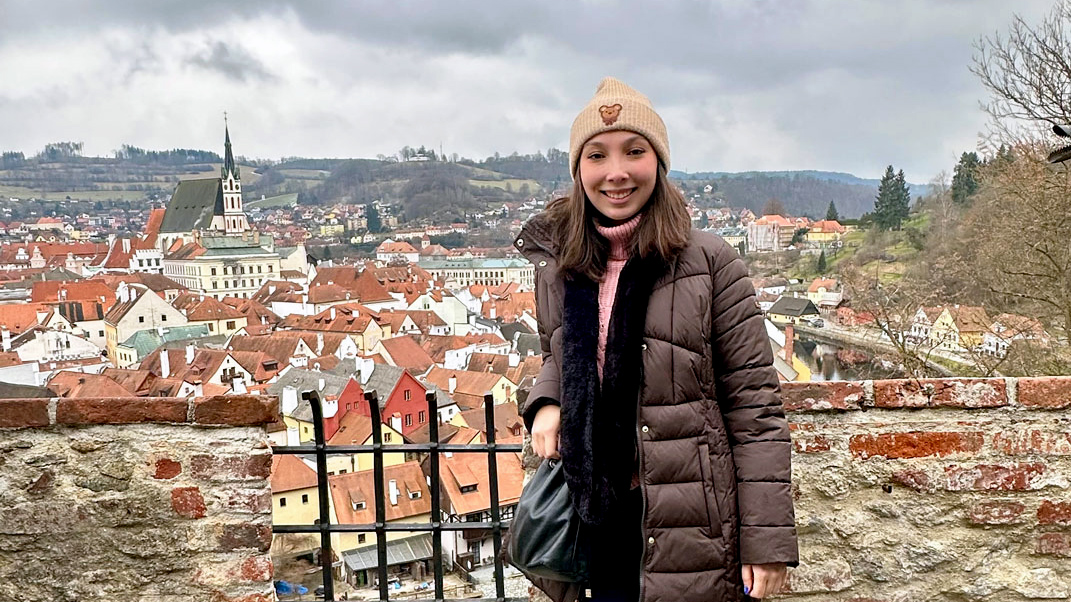International Inquiry: Providing Local In-Service Teachers with International Professional Development

Three NC State College of Education faculty members and 20 in-services teachers from Chatham, Durham, Orange and Wake counties explored Prague for two weeks in July as part of a teacher professional development program called “Cultural Connections, Collections, and Reflections.” This program leverages technology to help Triangle-area teachers and their students develop a greater understanding of diverse cultures.
“Teachers have limited opportunities to travel abroad and experience other cultures, so it is indeed difficult for them to convey stories and lessons back home,” said Kevin Oliver, professor of learning design and technology and a faculty leader of the trip. “This program provides a valuable link.”
Since 2011, the program has taken 108 Triangle-area teachers abroad with England, Finland, Sweden and the Czech Republic serving as target cultures for teachers to analyze through research and technology projects. Angela Wiseman, an associate professor of literacy education, and Ruie Pritchard, a professor emerita of English education, serve as faculty co-leaders on this program currently funded by the Triangle Community Foundation’s Borchardt Fund.
Teacher participants learn about technologies and project strategies for connecting with, collecting and reflecting on culture during four full-day class sessions on-campus leading up to the trip. The class sessions provide training and skills teachers can use immediately to introduce diverse cultures to their own K-12 students.
Teachers are also required to conduct an intercultural classroom project before traveling abroad. This project connects participants with teachers in the host country during the academic year, and together, they conduct a global project between the two classrooms.
This provides an opportunity for teacher participants to experience how classrooms in Prague operate since they travel during the summer when schools in both areas are closed.
Once in Prague, participants met for half-day class sessions and conducted field research in the area at museums and cultural sites. Their travel itinerary also included time to join local meetup groups in the area to fully experience the culture in Prague.
Oliver says the benefits of this program are already entering the classroom. Early data reports — from surveys administered by the program — show positive outcomes in the participants’ K-12 students.
“When surveying K-12 students about global projects, we expected them to talk about cultural differences, but instead many reported similarities between cultures suggesting they were able to find common ground,” said Oliver.
“We believe this is one of the more valuable outcomes of the program, showing K-12 students that people they initially perceive as different are really not that different at all.”
The Triangle Community Foundation recently awarded the program a one-year extension to take another cohort abroad in the summer of 2019. Oliver says the program will likely return to Prague due to the connections already established there and the low cost of living that will allow them to support more teachers to participate in culturally enriching immersion activities.
This post was originally published in College of Education News.


